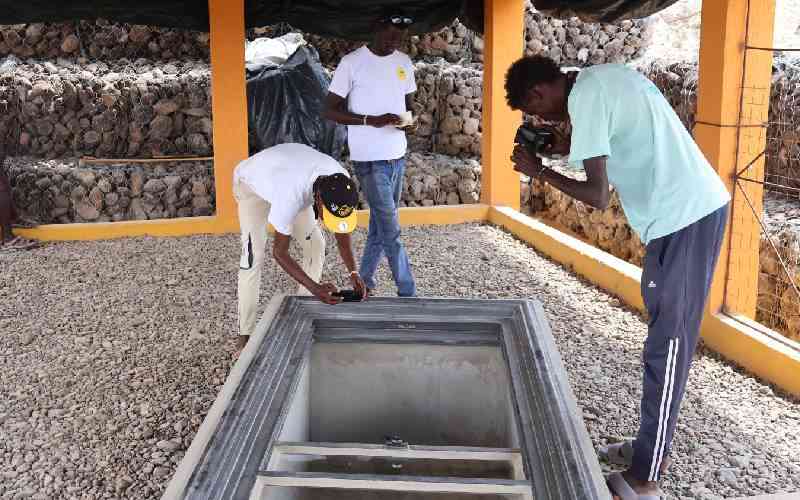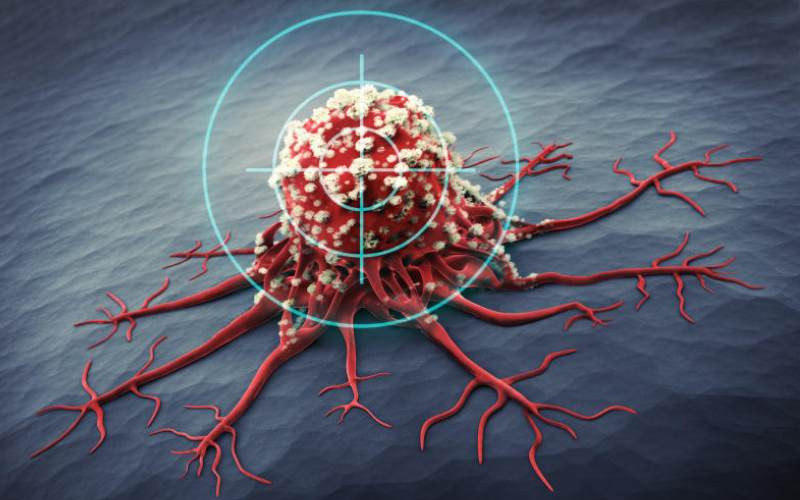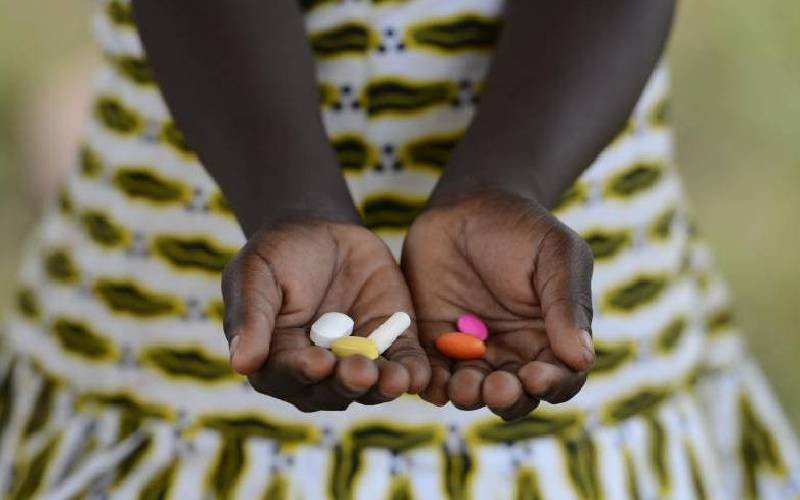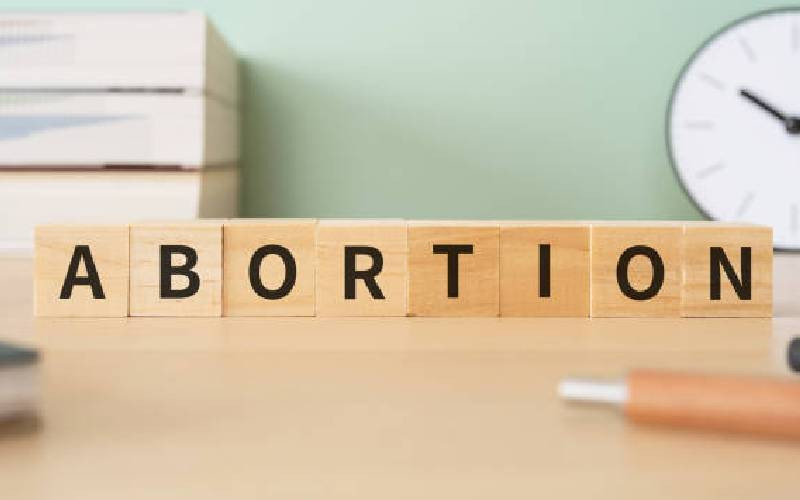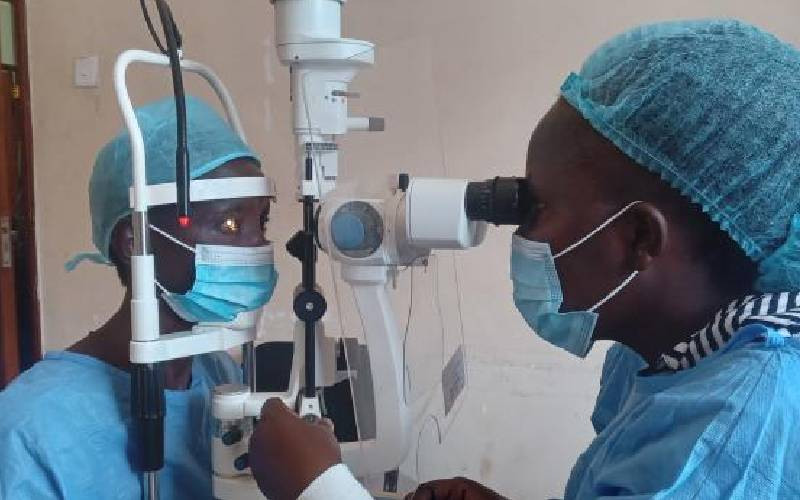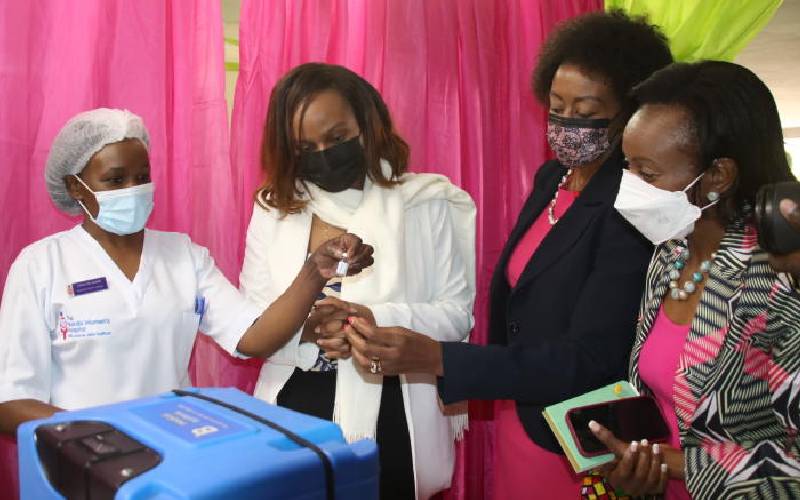
Nairobi Women's Hospital Nurse Caroline Karimi shows a package sample of the Johnson and Johnson vaccine to Ministry of health chief administrative secretary Mercy Mwangangi, Chairperson, Kenya Private sector Alliance (Kepsa) Flora Mutahi and CEO, Kepsa, Carole Kariuki at the vaccination facility at shelter Afrique after briefing on the private sector Covid-19 vaccination roll out at KEPSA offices.[David Gichuru,Standard]
Jane Achieng 58, sits pensively outside her house in Kajulu village, Kisumu County, watching Linda Aketch, her 18-year-old niece who received a first dose of Astra Zeneca vaccine two days ago.
Linda has a fever and headache and the reason Achieng is nervous about the vaccine. She has adopted a wait and see attitude on how Linda’s side-effects unfolds, before getting the jab herself.
 The Standard Group Plc is a multi-media organization with investments in media
platforms spanning newspaper print
operations, television, radio broadcasting, digital and online services. The
Standard Group is recognized as a
leading multi-media house in Kenya with a key influence in matters of national
and international interest.
The Standard Group Plc is a multi-media organization with investments in media
platforms spanning newspaper print
operations, television, radio broadcasting, digital and online services. The
Standard Group is recognized as a
leading multi-media house in Kenya with a key influence in matters of national
and international interest.


